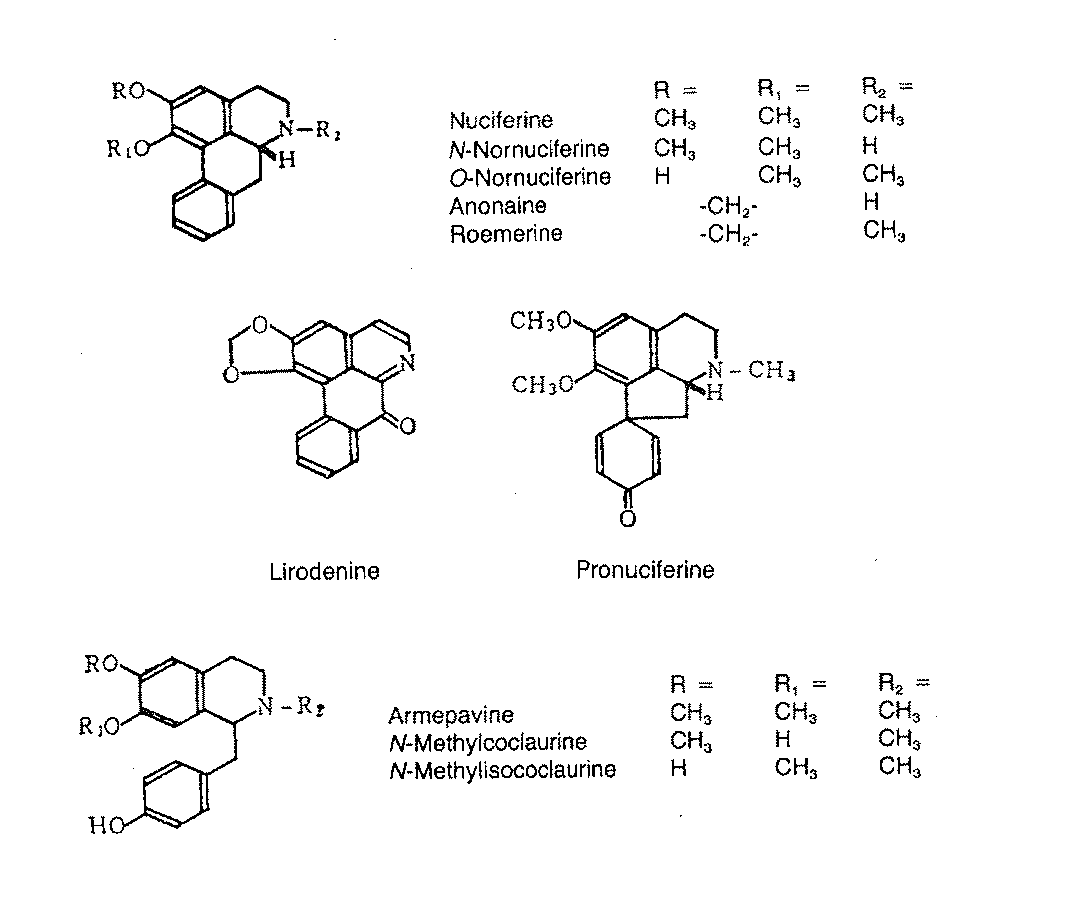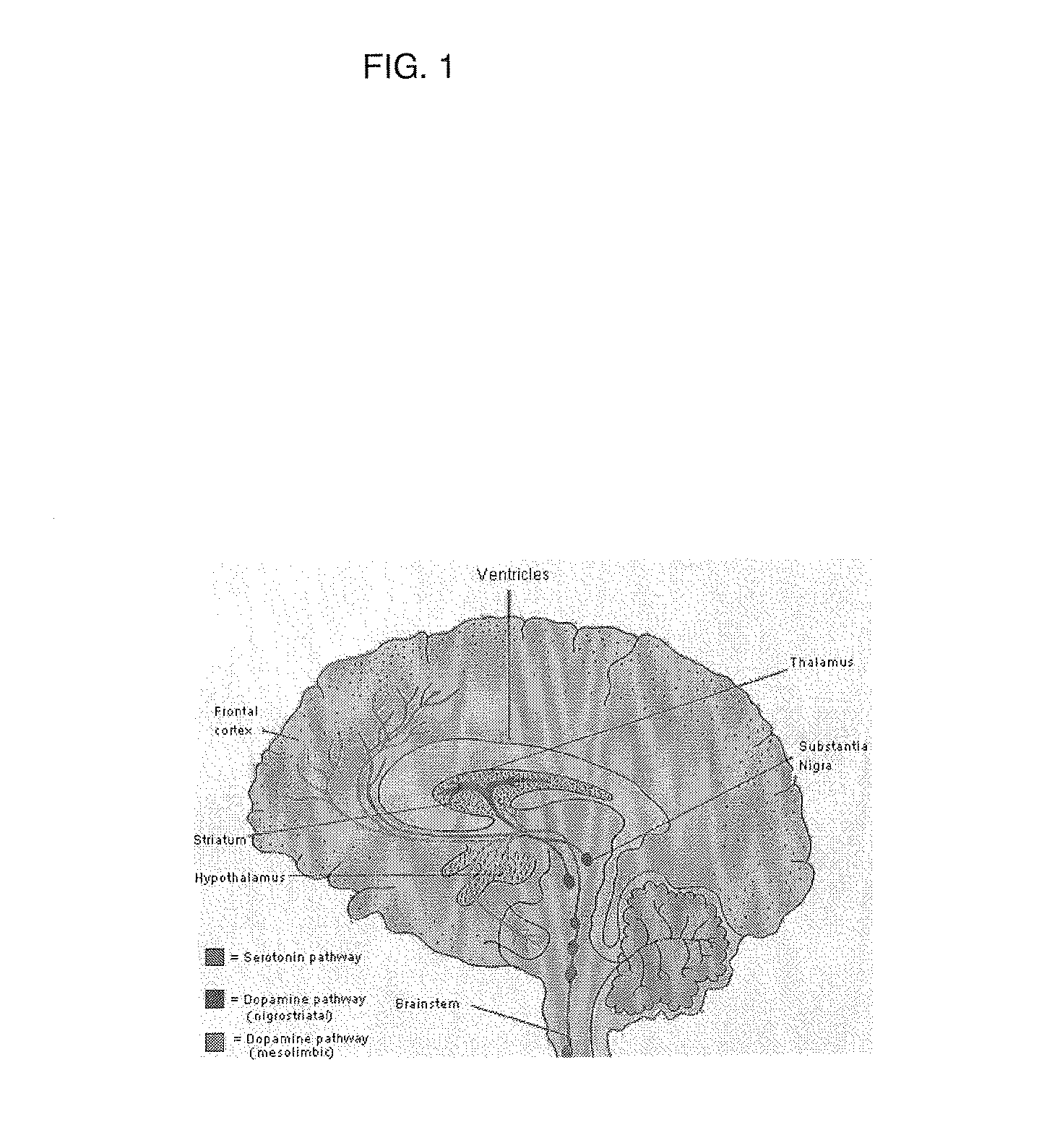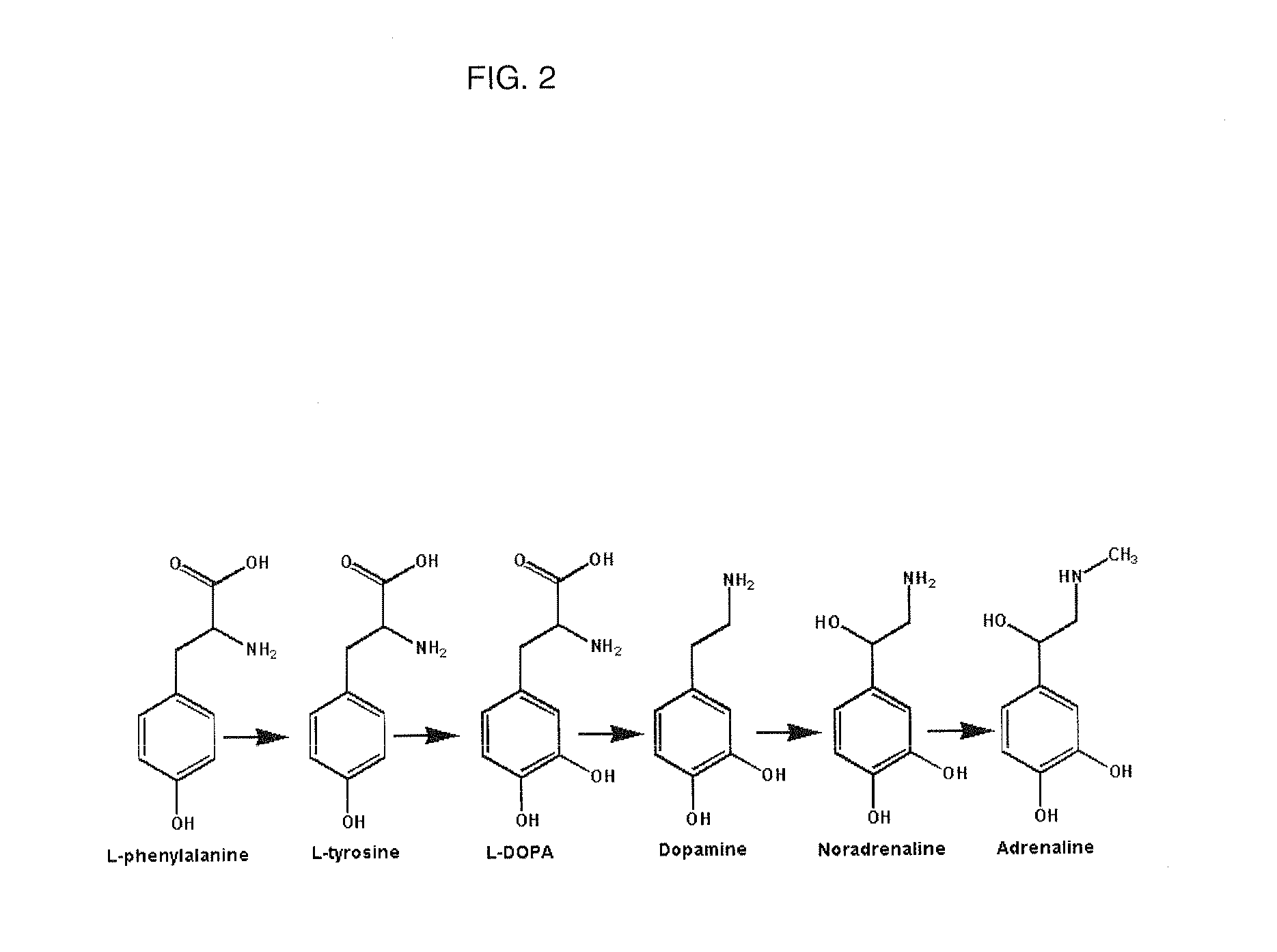Method for the induction of a reward response by modulation of dopaminergic systems in the central nervous system
a dopaminergic system and central nervous system technology, applied in the direction of drug compositions, peptide/protein ingredients, metabolic disorders, etc., can solve the problems of self-sustaining loops and pathological reward responses in eating behavior disorders, and achieve the effect of reducing food cravings and reducing interest in food
- Summary
- Abstract
- Description
- Claims
- Application Information
AI Technical Summary
Benefits of technology
Problems solved by technology
Method used
Image
Examples
example 1
[0037]A blend of ingredients was made and capsules (white size 0) were filled according to the following formulation:
Component:Mg / capsule:%L-tyrosine (USP)150.0033.341)Velvet bean (Mucuna pruriens)100.0022.22extract2)Sacred lotus (Nelumbo nucifera)100.0022.22extract3)Bitter orange (Citrus aurantium)40.008.89extract4)Griffonia (Griffonia simplicifolia)40.008.89extractMagnesium stearate10.002.22Silica10.002.22450.00100.001) Velvet bean extract contained 25% L-DOPA; 100 mg provided 25 mg L-DOPA.2) Nelumbo nucifera leaf extract, 8% alkaloids; 100 mg provided 8 mg mixedaporphine alkaloids.3) Bitter orange extract at 30% alkaloids (synephrine, octopamine, hordenine,tyramine, N-methyl-tyramine.4) Griffonia extract was 25% 5-hydroxytryptophan.
[0038]The resultant capsules provided, per capsule, 175 mg of dopamine precursors and 8 mg of dopamine agonists.
example 2
[0039]A blend of ingredients according to the following formulation was made, and compressed to tablets weighing 1000 mg each:
Component:Mg / tablet:%1)Velvet bean (Mucuna pruriens)300.0030.000extract2)Green tea (Camellia sinensis)250.0025.000extract3)Sacred lotus (Nelumbo nucifera)200.0020.000extractStarch USP130.0013.000Croscarmelose sodium50.005.000Microcrystalline cellulose50.005.000Magnesium stearate10.001.000Silica10.001.000Total weight excluding film coat1000.00100.001) Velvet bean extract contained 25% L-DOPA; 300 mg provided 75 mg L-DOPA.2) Green Tea extract was 36% caffeine and 45% catechols3) Sacred lotus was the Nelumbo nucifera leaf extract, 8% alkaloids; 200 mg provided 16 mg mixed aporphine alkaloids.
[0040]After compression, the tablets were film-coated with hydroxypropylmethylcellulose.
[0041]The disintegration time of these tablets in simulated gastric juice was 30 minutes. They provided, per tablet, 75 mg of dopamine precursors as L-DOPA and 16 mg dopamine agonists.
example 3
[0042]Male subject DJ took 5 capsules prepared as described in Example 1, prior to undergoing fMRI of the central nervous system. There was a brief period of mild euphoria after about 45 minutes, lasting 15-30 minutes, accompanied by a subjective feeling of well-being which persisted for about 2 hours. When confronted with a meal 3 hours after taking the capsules, the subject had a distinct lack of appetite and lack of interest in eating.
PUM
| Property | Measurement | Unit |
|---|---|---|
| weight | aaaaa | aaaaa |
| weight | aaaaa | aaaaa |
| weight | aaaaa | aaaaa |
Abstract
Description
Claims
Application Information
 Login to View More
Login to View More - R&D
- Intellectual Property
- Life Sciences
- Materials
- Tech Scout
- Unparalleled Data Quality
- Higher Quality Content
- 60% Fewer Hallucinations
Browse by: Latest US Patents, China's latest patents, Technical Efficacy Thesaurus, Application Domain, Technology Topic, Popular Technical Reports.
© 2025 PatSnap. All rights reserved.Legal|Privacy policy|Modern Slavery Act Transparency Statement|Sitemap|About US| Contact US: help@patsnap.com



